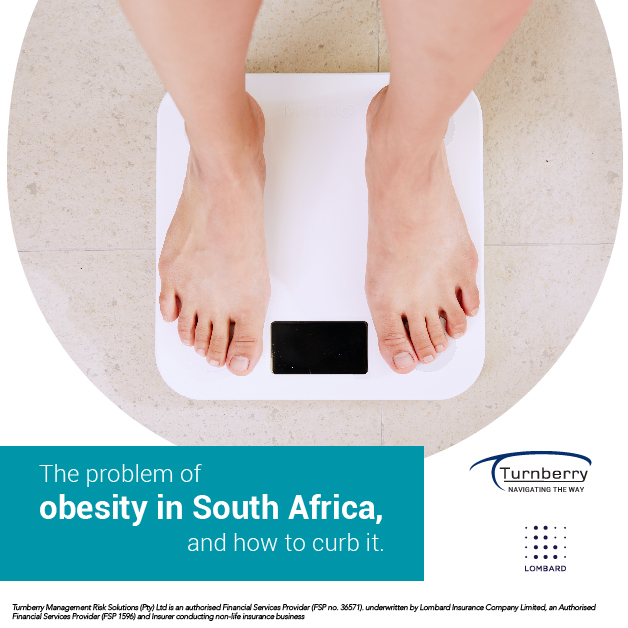
Engineering News, 10th August 2021
Obesity is a global public health challenge, and a significant issue in South Africa. Half of all South Africans are considered to be either overweight or obese, and this leads to an increased risk of heart disease, Type 2 diabetes, certain cancers and premature death. The high cost of obesity is not only felt by the healthcare sector and by medical schemes, but it also puts strain directly on the budgets of every individual as well as on the South African economy as a whole.
The burden of comorbidities
One of the biggest challenges around obesity is that it can lead directly to other non-communicable diseases, including heart disease, diabetes, chronic kidney disease, musculoskeletal disorders, and specific types of cancer. All these conditions require ongoing, potentially lifelong care and treatment, and are costly for both the public and private healthcare sectors.
These conditions can also lead to further complications, for example, diabetes can cause blindness and circulatory problems that can, in turn, cause other issues. Heart disease often requires expensive and risky open-heart surgery, and cancer needs ongoing treatment and often also requires surgery. While medical aid will cover the cost of treatment for these conditions, there is still the potential for shortfalls, for which the patient will be liable to pay.
Added costs on top
Aside from the cost of care – including medication and health complications – obesity increases the risk of surgery, especially if the patient’s Body Mass Index (BMI) is greater than 35. For this reason, surgeons in private hospitals are permitted by the Council for Medical Schemes to charge a modifier for these patients.
This amounts to an additional 50% of the fee for surgeons, and a 50% increase in anaesthetic time units for anaesthesiologists. While again, this is covered by medical aids up to their specified rate, the patient will still be liable for any shortfalls over and above what their scheme will pay.
Bariatric surgery is not a quick fix option
Reality television shows have normalised bariatric surgery (or ‘stomach stapling’) as a quick and easy solution to the challenge of obesity. However, this paints a very glamourous picture of a surgery that is, in fact, an absolute last resort. Bariatric surgery requires permanent lifelong changes to diet and exercise routine as well as constant monitoring of underlying diseases and risk factors.
There are also very specific clinical entry criteria that need to be met before a surgeon will even consider the procedure for a patient. In addition to this, there are very few medical schemes in South Africa that will cover the costs for bariatric surgery, and then only on a few of the very top plans and only under extremely specific conditions. This means that, in most cases, should a patient opt for this route as a method of weight loss, the cost will fall to them. Even if the medical scheme pays, they may only cover a portion of the costs
Gap cover can help… most of the time
When it comes to the shortfalls on the majority of treatments and procedures that result from secondary conditions exacerbated by obesity, gap cover can provide some relief. For example, the shortfalls in cancer treatments, surgical procedures and hospital stays will be covered most of the time. However, this is a different story when it comes to bariatrics. Even if the medical scheme will cover it, there are no gap cover providers that will cover the patient for any associated shortfalls. This could leave patients under significant financial strain.
Health and wellbeing are everyone’s responsibility
There is no quick fix solution to the challenge of obesity in South Africa. While the government introduced a sugar tax in 2016, which has reduced the obesity rate, it is still a massive problem. In 2019, up to 70% of women and one third of all men in the country were overweight or obese. In addition, 20% of girls younger than 9 years are considered overweight.
The pandemic has made everyone more sedentary and has also had negative effects on many people’s diet, which is further adding to the burden of obesity. This costs the country and the healthcare sector a great deal of money. It is everyone’s responsibility to look after their health, and this includes maintaining a healthy weight and diet. Luckily, there are now many options available outside of the traditional gym setting, such as online fitness classes, educational offerings, and nutritional guides. Surgery is not a quick fix, but a last resort, and no matter what treatment is taken, lifelong adjustments to diet and exercise must be included.
https://getcovered.turnberry.co.za/app/1
